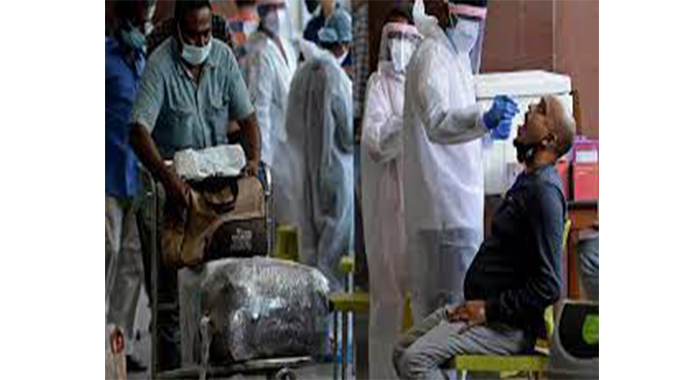COMMENT: Government, parents must accept the new normal
Blended learning, a new term introduced by the Ministry of Primary and Secondary Education, is clear testimony that we are adjusting to the “new normal”.
There is no way a pandemic that has claimed over three million lives will fail to change our lives forever.
Some scientists have gone as far as concluding that we could be sanitizing, social distancing and wearing facemasks for many years to come.
So blended learning – the mixture of normal lessons, radio, TV and online learning – is part of the new normal.
Because the education ministry is alive to this fact, it has, in conjunction with Unicef, rolled out the first phase of television lessons as part of the alternative learning platform for primary school pupils.
The programme, which started on Monday, is targeting pupils in Grade 3 and 7 and will run until June 5. The 15-minute lessons are being aired on ZBC between Monday and Friday.
Ministry of Primary and Secondary Education spokesperson Mr Taungana Ndoro said the programme is aimed at enhancing blended learning strategies.
“The television lessons are part of the alternative learning platform to enhance our blended learning strategies. As Ministry of Primary and Secondary Education, we intend to reach to learners by introducing TV lessons to complement the radio lessons,” he said.
While Mr Ndoro said the programme is in response to the prolonged closure of schools due to Covid-19, it is our belief that TV, radio and online learning will continue even after the Covid-19 pandemic.
Online learning, in particular, is not only a good alternative during the Covid-19 crisis, but is probably the most relevant mode of learning during the internet era.
At workplaces, many struggled to connect to online meetings which replaced physical meetings because of Covid-19. The leaders of tomorrow will not have a problem with online meetings because they are already doing them at school.
Meeting physically and travelling long distances will soon be a thing of the past as companies save money and time.
The graduates of tomorrow are, therefore, getting the most relevant education and will probably be the ones resisting long trips and physical meetings in the future.
Soon, we could have an online primary or secondary school. A school that does not own any premises.
School uniforms, playgrounds, dining halls and leavers’ dinners could soon be a thing of the past.
It sounds farfetched, but if Covid-19 has taught us anything, it’s that anything is possible. Change is possible.
We, therefore, commend Government through the Ministry of Primary and Secondary Education for accepting reality and quickly moving with the times.
Resources must now be channelled to where they are needed most. Internet connectivity and digitisation of radio and TV are some of the areas that need more funding.
Computers, I-pads, laptops and e-books must be affordable or locally produced.
Syllabi must be continuously reviewed or we run the risk of being left behind in an everchanging world that waits for no one.
Teachers must also be capacitated. They were not trained for blended education.
Government has accepted the new normal, parents must accept the same.











Comments